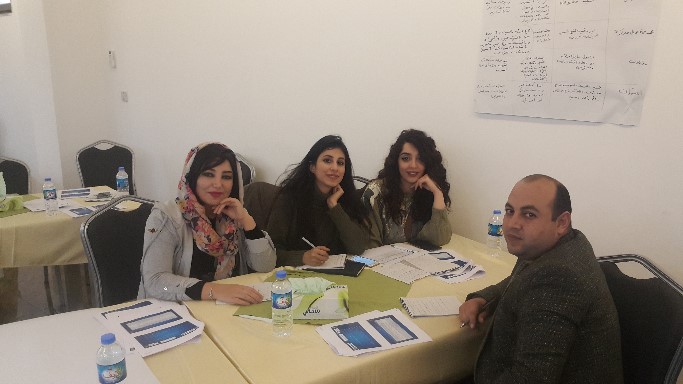For generations of Iraqis, playing a meaningful role as an active member of civil society was fraught with risks. While many challenges remain, now, with the retreat of ISIL from Iraq, there has never been a better time to reassert the powerful role of civil society at the forefront of national development. Given the country’s contemporary challenges, the need for ordinary Iraqis to play a bigger role in the management of day-to-day life within their communities have never been clearer.
Since 2017, with the support of AFD and the European Regional Trust Fund, ACTED has contributed to building the capacity of two local NGOs (SEWAN and RWANGA) and of the Department of Labour and Social Affairs (DOLSA) in the city of Dohuk, in Iraqi Kurdistan.
Investing in tomorrow by supporting local NGOs
With the gradual climb-down of hostilities against ISIL in late 2017/early 2018, millions of displaced Iraqis began to return to their homes and communities. 6.7 million remain in need of humanitarian assistance.
A wide range of civil society actors are already making great strides forward in improving life for those returning and those who stayed. These include SEWAN, a Dohuk-based Women’s Rights organisation.
While the staff of SEWAN demonstrated good organizational abilities as well as well-defined administrative tasks, the organisation clearly needed support in the areas of: finance, monitoring and evaluation, and staff management
Stronger partnerships come through stronger partners
To address the identified gaps in its capacity, ACTED invited Meerwan, SEWAN’s Project Coordinator to take part in a capacity building program. The aim in her case was to help her NGO to increase its ability to deliver psycho-social and health services to women in Iraq. ACTED hired an expert consultant to ensure that the course modules were adapted to her needs, as was the case for all of ACTED’s partners within this intervention.
I had never had a training on Monitoring and Evaluation before and I learned a lot: how to manage many basic data collection methods, the types of monitoring, their objectives, results-based analysis, indicators, targets, means of verification… I will keep and use the material for my own projects. It will be very important for SEWAN to develop better logframes in the future


Since 2017, ACTED has trained 238 frontline workers from the Department of Labour and Social Affairs (DoLSA), SEWAN and RWANGA to strengthen the capacity of local institutions.